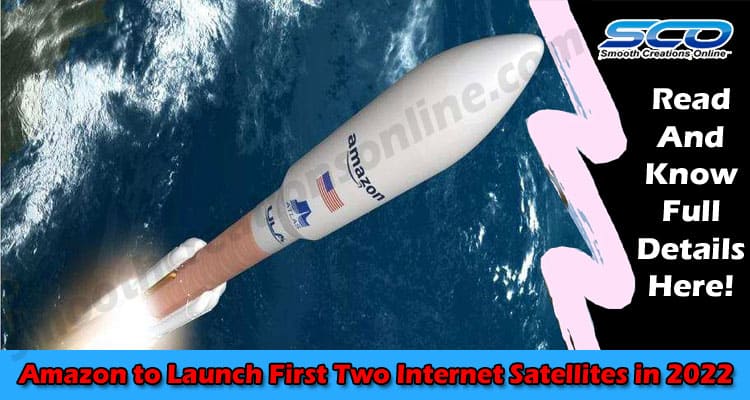Amazon to Launch First Two Internet Satellites in 2022 – Project Kuiper is on its way to literally getting off the ground. This is Amazon’s program, being managed through a subsidiary company created in 2019, that aims to improve access to internet in remote, rural, and underserved areas.
It’s a project that represents a significant step up from what’s currently possible traditional satellite internet service. Amazon’s vice president of technology states “there’s no substitute for on-orbit testing,” emphasizing the importance of launching satellites into low-Earth orbit (LEO) to determine if any further adjustments may be necessary.
The launch will be accompanied by related satellite dish testing. The Jeff Bezos-helmed company recently announced plans to send its KuiperSat-1 and KuiperSat-2 satellites into LEO in late 2022.
Table of Contents
A Follow-Up to an Approved FCC Request
Amazon has already filed a request with the Federal Communications Commission (FCC) to launch these two satellites into low-Earth orbit. The company’s latest action, officially announced in late November 2021, is a follow-up step that further solidifies Amazon’s commitment to achieving its goal of improving internet access. An RS1 rocket will take the company’s two satellites into space during the fourth quarter of 2022, according to the announcement.
Upping Amazon’s Profile in an Increasingly Crowded Field
Amazon is partnering with telecommunications giant Verizon to become a major player in the low-Earth orbit satellite constellation market. The biggest competitor Amazon has at the moment is Starlink, referring to a SpaceX-managed satellite internet constellation. Many other companies and networks, including OneWeb and Omnispace, are already in various stages of development with similar efforts. Amazon is further boosting its profile in this increasingly crowded and competitive field with plans to hire “hundreds more” team members for the project. In fact, the company has a recently built factory in Washington state specifically dedicated to satellite testing and manufacturing.
The Importance of These Satellite Launches
It’s no accident Amazon is starting its launch efforts with the KuiperSat-1 and KuiperSat-2 satellites. These two orbiting objects are outfitted with a big chunk of the technology needed to lay the groundwork for the ability to deliver reliable high-speed internet via satellite. Features of these two satellites include:
• Phased array and parabolic antennas
• Power and propulsion systems
• Custom-designed modems
Satellite Dish Testing and Antenna Plans
Proving the company truly has all its bases covered, Amazon is also planning to do some testing involving satellite dishes. These tests will take place in McCulloch, Texas and involve consumer satellite dishes. The antennas are intended to help Amazon keep prices reasonable to allow even more customers to benefit from dependable internet service. Tests were done on prototype equipment in 2020. The plan with the antennas is to have them connect with the satellites up to five times each day for intervals that could be as long as four minutes.
Minimizing Impact on Ground-Based Telescopes with Sun-Shading
Several researchers have expressed concerns about the growing clusters of low-Earth orbiting satellites. The main reason is due to the possibility of interference with ground-based optical telescopes needed for space observance. SpaceX has addressed this concern by adding specially designed “sun visors” to its LEO satellites to minimize glare. Amazon will be doing something similar with one of the two prototype Kuiper satellites. The company plans to collect reflectivity data to determine if sun-shading is beneficial in a way that makes it worth the effort to have this added feature. Amazon’s satellites are also designed to burn up when entering the atmosphere when they are no longer usable to minimize the possible environmental impact.
On a side note, Amazon’s rocket launch partner, ABL Space Systems, recently announced that Cape Canaveral is the current planned launch site. However, this is still tentative since two previous launch sites were also announced and later changed to different locations. Even so, it’s clear from Amazon’s satellite launch plan announcement that the company fully intends to be a serious and long-term player in the next generation of satellite internet providers.
Also Read – Sweepstakes Internet Cafe Software: Surprising Facts!


